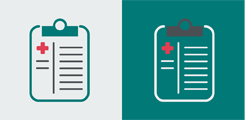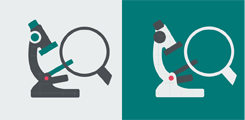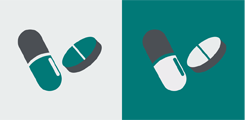COLD SORES
Cold sores are a viral condition that manifest as blisters filled with fluid on or around the lips and that, when broken, become ulcerated and scabby. They are very contagious.
There is no complete cure for cold sores, but you can follow certain rules to mitigate them and reduce their occurrence.
They are caused by some strains of the "herpes simplex" virus, usually type 1 (HSV-1 virus), although they can also be caused by HSV-2 (which is the cause of genital herpes).
The virus is transmitted through direct contact and remains latent without symptoms until it manifests, among others, due to one of the following causes:
- The cold.- with which lips can become cracked and more prone to infection.
- The sun and air.- can damage lips just like the cold.
- Hormonal changes.- such as those that occur during menstruation.
- Immunosuppression; caused by:
- Stress.
- AIDS (HIV).
- Seasonal.- Defence defences tend to be lower in autumn and winter.
- Other diseases.
- Chemotherapy drugs for cancer.
- Medication to prevent the rejection of transplanted organs.
Before the blister appears, burning and itching begins to appear in the area where it is going to develop, which then becomes hard.
The blister develops, filling with liquid until it explodes and with time it suppurates and dries, leaving a scab that will fall off in a short time. Blister groups often form and become joined together in a larger blister.
Although it is not usual, blisters may also appear beyond the lips, on the cheeks and chin, and even inside the nostrils and mouth (palate or gums).
Some people, although infected with the virus, do not show symptoms.
The first flare is usually the worst and often the onset of blisters is accompanied by these other symptoms:
- Headaches, throat ache and muscle aches.
- Fever.
- Inflammation of the lymph nodes.
- Gum erosion and pain.
In the following flare-ups, these symptoms tend to remit and are reduced to the appearance of blisters.
For a professional, it is relatively simple to diagnose cold sores at first sight, but if they are in doubt, they will send a sample to the laboratory for analysis.
Symptoms usually disappear on their own after a couple of weeks.
The medication for the episode to pass faster will be based on antiviral drugs, among others Penciclovir, Valaciclovir or Acylovir are used. Some medicines are applied in the form of cream and others are pills.
To relieve pain, pain medication (benzocaine, lidocaine, etc.) may also be prescribed. Cold and wet compresses applied to the blisters will promote healing as well as relieve pain.
More careful hygiene is essential during flare-ups, washing your hands more often and avoiding touching the sores as the infection could be transmitted to other areas and even to the eyes.








